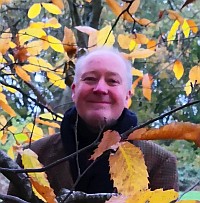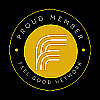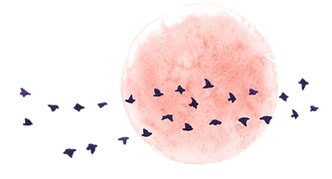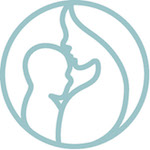A user manual for the Body-Mind
workshops by
Andrew Cook MSc RCST
 About... Andrew Cook
About... Andrew Cook

Craniosacral
Over the years I have repeatedly experienced Craniosacral Therapy (CST) as an elegant and remarkably powerful bodywork technique that is a real joy to practice. It is a gift to be able to help people and see them looking happier and more free as their pain goes. Also working with (colicky) babies and helping them to be at ease is one of the most wonderful experiences - knowing that this will have a positive impact on their whole life.
I am continually curious about both CST and the living experience of being in a body, and have self-published a paper on Cranial bone motion in a peer reviewed journal. Since then I have been further adapting CST to increase the effectiveness of my treatments. Everybody comes with their own personal story... and their body also has its own, sometimes different story. In each session I do my best to match the techniques applied to those stories and to provide help in the most efficient way possible.
Before...
I was taught First Aid almost to a paramedic level in my first job as a junior manager in the South Yorkshire mining industry. Whilst on holiday in 1982 a young girl in Delhi airport when started to pass out during an asthma attack. I applied the usual First Aid to help her lungs to start moving again but her face was still getting more and more cyanosed (blue due to oxygen starvation). Someone else then came to help, took off her shoes, twiddled with her feet, her face suddenly turned pink as she started to take in oxygen again. That was my first experience of Reflexology, and my first introduction to complementary therapies.
After qualifying in 1988 and then teaching Reflexology for some time, I realised that I was wanting to treat the whole body. A friend showed me an advertisement for a Craniosacral Therapy workshop in 1994, just a couple of years after the Upledger Institute first started running courses in the UK. I have always been drawn to nature, and at the time my "day job" was as a hydrogeologist - and I had a particular interest in springs and wetlands. Within the first half hour of the course, the tutor started talking about the movement of fluids in the human body, and I was hooked. Somehow, working with rhythms and tides in the human body seemed to connect up to my experience of unravelling the flow of water in wetlands and nature reserves.
The Body-Mind
After about 10 years practicing CST I began to realise that many people coming through the door with physical pain and other very physical problems actually had a problem with embodiment - or more accurately, trauma, dissociation and dis-embodiment. At the time there happened to be a conference on Dissociation in my home city of Norwich, run by the ESTD, and from there I took part in a foundation training in trauma treatment with the SensoriMotor Psychotherapy Institute (SPI). I am currently integrating Formative Embodiment as part of a general project to expand my practice to a broad range of "Somatic" (body-based) Wellness-informed and Trauma-informed approaches to treatment.
My first experience of the effect of dissociation on the body was at the very start of my CST career, when a young man came in for treatment with a broken leg that had been in plaster for 6 months, was not healing, and was very painful. I somehow understood early on in the session that he was terrified of his leg - partly because it was his first hint of mortality, and partly just because of the continuous pain. So he had dissociated from the leg. I spent most of the hours treatment getting him into a more compassionate relationship with the leg, and also helping him to be aware of the leg (instead of just being frightened of the pain). And what happened? Next week he came back the leg was hardly painful at all and had started to heal. Since then I have had many other (sometimes quite spectacular) experiences of physical healing taking place once people become more fully embodied.
Having applied PolyVagal Theory in my CST practice for over 15 years, I am now teaching resilience workshops based on the same material.
Clinics
Current clinics, addresses, contact numbers and working days can be found on the main contact page.Fees
Current fees can be found at the bottom of the main contact page.Low cost clinics are also available.
Training
A selection of training & postgraduate courses completed include :- Oct 22 (18 hrs): Stillness and the heart : working with the cardiovascular system with Dr Ian Wright
- Sep 22 (26 hrs): Keys to self-forming and self-empowerment with Dr James Feil
- Aug/Sep 22 (7 hrs): Formative Embodiment Review with Dr James Feil module #4
- Nov 21 (24 hrs): Formative Embodiment with Dr James Feil module #4
- Sep 21 (24 hrs): Formative Embodiment with Dr James Feil module #3
- Jun 21 (24 hrs): Formative Embodiment with Dr James Feil Module #2
- Apr 21 (10 hrs): Formative embodiment & the art of storytelling (Formative Embodiment module #1) with Dr James Feil
- Jul 20 (1.5 hrs): Listening To The Small Voice Within - Craniosacral Therapy Research Findings (Nicola Brough)
- Jul 20 (1 hrs): Dr Arielle Schwartz - Enhance your resilience during transformational times (Zoom)
- Jun 20 (1 hrs): Interview with Mary Jayne Rust on her new Ecopsychotherapy book
- May 20 (4 hrs): Feldenkreis session with David Zemnach-Bersin: Movements of the Jaw & Tongue to Reduce Anxiety
- Apr 20 (1.5 hrs): Jaap van der Waal - What the Embry has to say about togetherness (Zoom)
- Aug 19 (1 hrs): Secret life of Fascia lecture
- Jun 19 (4.5 hrs): Gut feeling : the microbiome gut-brain axis with Viola Sampson
- May 18 (13 hrs): Midline in Everything : CTET/Michael Kern
- Midline in Everything (CTET/Michael Kern) May 2018
- Mar 17 (12 hrs): ESTD Training Conference | 30-31 March 2017 in Norwich
- Speech of the Embryo (Jaap van der Wal) May 2016
- Cadaver prosection : Brain & Spinal cord (Dr David Parry) Mar 2015
- Fluid Systems. fulcra in transition (Averille Morgan) Oct 2013
- New directions in SensoriMotor Psychotherapy (Pat Ogden) Apr 2012
- Miserable baby : Treating feeding & digestive disorders in babies (Miranda Clayton) Apr 2012
- A bellyful of Health (Katherine Ukleja / CTET) May 2011
- Infant Movement Development (IIBMT / Linda Hartley) Jul 2011
- Somatic Psychology : the embodiment of spirit (IIBMT / Linda Hartley) Jul 2011
- Trauma (CCST / Thomas Attlee) Nov 2008
- Speech of the Embryo with Jaap van der Wal (2 days) Mar 2007
- Treatment of Trauma : foundation course (SensoriMotor Psychotherapy Institute) Jul 2006 - May 2007
- Trauma/ESTD conference UEA Feb 2006
- Stillness & Form (CTET, 2 days) Dec 2005
- Non-Violent Communication Foundation training Nov 2005
- Spark in the Motor (CTET, 2 days) Dec 2004
- Chinese hand diagnosis Sep 2004
- Karuna Craniosacral Biodynamics 15-20 Jul 2001
- Upledger Advanced-1 Mar 2001
- CST Practitioner Certificate (CCST) Oct 1996 - July 1997
- Therapeutic Massage (IEB) 1996-7
- Upledger SER-2 (4 days) Nov 1996
- Upledger SER-1 (4 days) Jun 1996
- City & Guilds Adult Education Teacher's Certificate (30 days, completed April 1996)
- Advanced Reflexology with Tony Porter (2 days) Jan 1996
- Upledger CST-2 (4 days) Apr 1995
- Upledger CST-1 (4 days) Oct 1994
- Reflexology (Bayly School) April 1989





<< ¦ Top ¦ Menu ¦ Front page ¦ Body-Mind ¦ CST/Clinic ¦ Contact ¦ Site Map ¦ Search
all content © Andrew Cook, Norwich UK, 2021-2024



